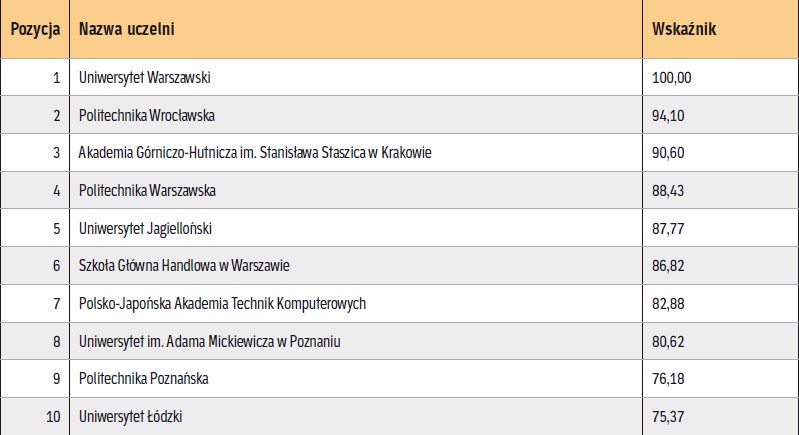SGH is ranked sixth in the “Rzeczpospolita” ranking of universities in Poland

The SGH Warsaw School of Economics was ranked sixth in the 2025 Ranking of Universities prepared by the “Rzeczpospolita” daily. Thus, it is the highest ranked university of economics in Poland.
The first ten spots of higher education leaders offering the best start in the labour market in 2025 went to the following universities:

In total, 118 Polish higher education institutions were classified. Link to the General Ranking – Leaders of Polish Higher Education in 2025 by “Rzeczpospolita.”
The list contains institutions that are members or affiliates of the Conference of Rectors of Academic Schools in Poland (KRASP), with available Economic Fate of Graduates (ELA) data for at least three graduating years (2020–2022) of first-cycle, second-cycle and long-cycle degree programs in the first year after graduation.
The assessment relied on the following indicators:
- number of graduates in the Social Insurance Institution (ZUS);
- average and median gross earnings (in total and under an employment contract);
- Relative Indicator of Wages (WWZ): graduates’ earnings vs. the average earnings in the poviat of residence (WWZ > 1 indicates earnings higher than the local average);
percentage of graduates with an episode of unemployment; unemployment risk (average % of months out of work);
- Relative Indicator of Unemployment (WWB): risk of unemployment vs. local market (WWB < 1 means situation better than local average);
- average time until first job (in total and full-time);
- percentage share of self-employed; percentage of months in business;
- percentage share of people pursuing a second-cycle programme; percentage share of people pursuing a doctorate.
“Rzeczpospolita” reports that the general ranking was created by assigning weights to individual indicators, including: earnings (25% in total), risk of unemployment (26% in total), time to find a job (20% in total), entrepreneurship (14% in total), continued pursuit of education (10% in total), number of graduates (5%).
It further recaps that the ranking confirms the dominance of higher education institutions from large academic centres: “Economic and technical universities generally score high. Regional universities or universities for arts and humanities have lower scores. Their graduates are more likely to have lower wages and take longer until they find stable employment.”



